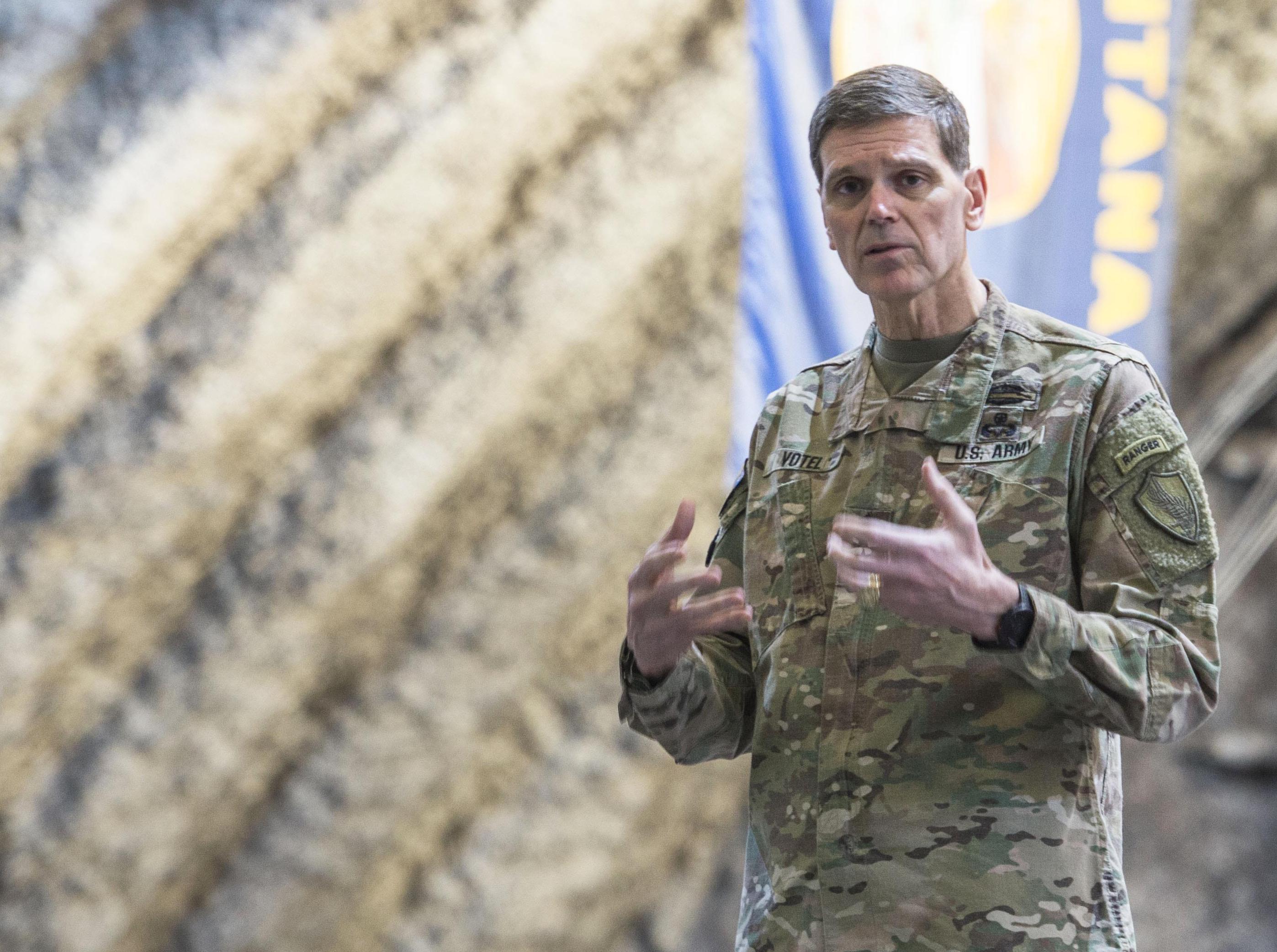
A range of competing interests in the Middle East are creating multiple complex situations for U.S. Central Command to navigate, CENTCOM commander Army Gen. Joseph Votel testified today.
Among the most difficult situations is the Syrian city of Raqqa, the capital of the Islamic State – where Syrian government, Syrian rebel, Kurdish, Turkish, Iranian, American and Russian forces are closing in on Islamic State forces.
“Unless something changes, I see a train wreck here,” Senate Armed Services Committee chairman John McCain (R-Ariz.) said at the hearing.
Aside from the risks to physical safety of the troops working in close proximity – last week Russian and Syrian regime pilots bombed a city full of U.S.-backed Syrian fighters, claiming they believed Islamic State fighters occupied that town – McCain noted the political challenges too, citing Turkish President Recep Tayyip Erdogan’s concerns over American backing of Kurdish fighters that he considers terrorists.
Turkey, a NATO ally, has been working with Russia in Syria and recently joined with Moscow in opening peace talks in Geneva to end the Syrian civil war. And yet at the same time, Votel said, U.S. aircraft are operating against the Islamic State from Incirlik Air Base in Turkey. The United States is not a participant in the Turkey-led peace talks.
Votel “military planning is closely linked to political planning” when it comes to not only liberating major cities like Raqqa and Mosul, Iraq, but also ensuring a peaceful existence afterwards. Forces need to help the towns establish good local governance and security, provide humanitarian assistance and conduct de-mining missions quickly.
Mosul is Iraq’s second largest city and is in a majority-Sunni region. Iraq is a majority-Shiia country, as is its ally in the fight, Iran. Concern over the sectarian divide spilling over into a new round of bloodshed in Mosul after the Islamic State has been driven from the city has grown as the fighting draws closer to the city center.
One change on the battlefield that drew congressional attention during the hearing was the Islamic State’s use of small weaponized drones in Iraq. U.S. forces have been able to counter the threat, Votel said, but the quadcopters “are a reminder of how savvy an enemy we are dealing with.”
With regard to defeating the Islamic State in the Sinai Peninsula, the general said the United States can provide essential assistance such as counter-Improvised Explosive Device (IED) jammers and other equipment Egypt might need in this conflict.
On Afghanistan, Votel said he agreed with Army Gen. John Nicholson’s assessment that the fighting in there was in “stalemate” and would require “a few thousand” additional forces to roll back the Taliban’s territorial gains of the past year. Nicholson commands all NATO troops in Afghanistan under the Resolute Support mission. Votel added that President Ashraf Ghani and Chief Executive Officer Abdullah Abdullah strongly support the coalition efforts to defeat the Taliban and the growing threat from the Islamic State in Afghanistan.
When asked about sanctuaries across the Afghan border for the Taliban and Haqqani Network, Votel said he has talked with Pakistani military leaders who have shown an increased interest in cooperating with the coalition and Kabul along the border.
Aside from the geographically growing threat from the Islamic State, McCain said in his opening statement “Russian and Iranian influence is growing in the region.”
Votel said later that “Iran seeks to be the regional hegemon” and poses the greatest security threat in the whole CENTCOM area of responsibility. For example, he said the country is building a layered defense that includes a Russia-built air defense system and anti-ship cruise missiles.
“We have to hold Iran accountable” for maritime harassment. “Nobody does that,” Votel said, referring to Tehran’s pattern of harassing U.S. Navy ships and others with its fast-attack swarm boats and causing near-collisions at times for ships crossing though the narrow Straits of Hormuz.
At the same time, Votel said, Russia is busy pursuing its own interests in the Middle East by taking sides in the Syrian civil war. Like the Iranians, Moscow is supporting the regime of Syrian President Bashar al Assad.
Overall, Votel said the U.S. strategy across the command’s area of responsibility is “to restore trust with our partners in the region” by linking military and diplomatic efforts. Militarily, the United States is using “a by, with and through approach” with “indigenous forces to build capacity” to defeat the Islamic State, al Qaeda and other violent extremist organizations and to counter Iranian influence and actions.





